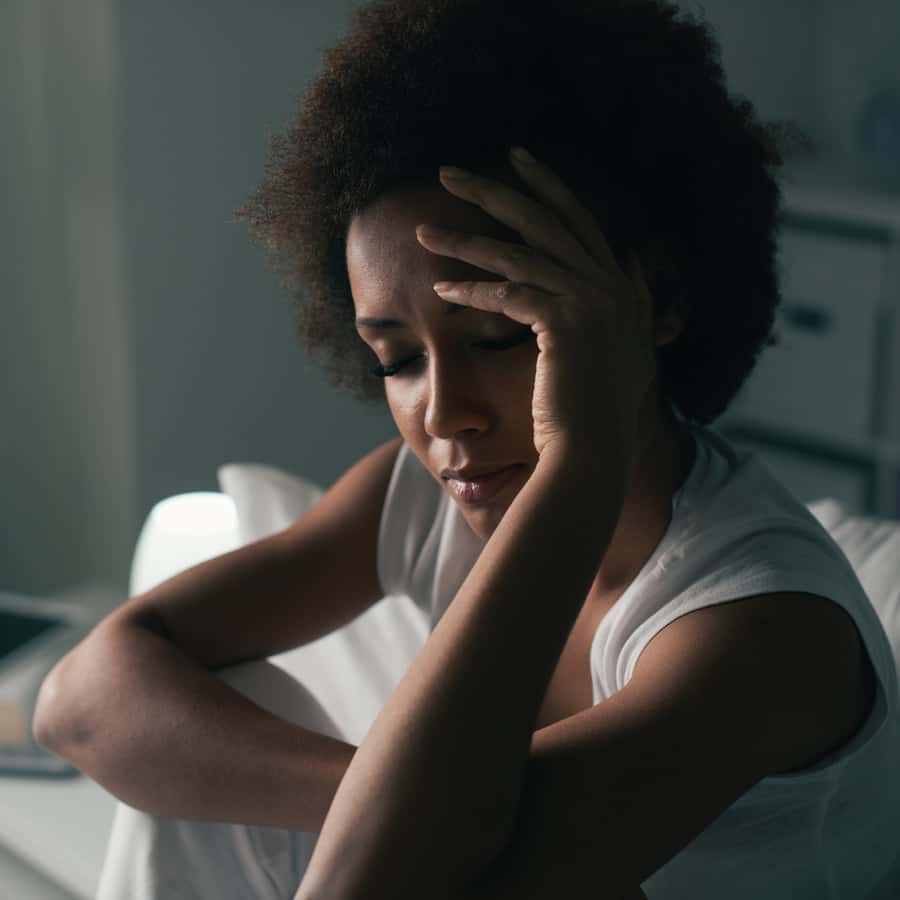
People who usually have trouble getting to sleep often complain about impaired daytime function. Researchers haven’t been able to document that such chronic insomniacs actually do worse than people who sleep normally. Consequently, they have assumed that perhaps the problem was more perceived than real.
How Do Chronic Insomniacs Deal With a Night of No Sleep?
Recently, however, investigators conducted a study that really shone a spotlight on the trouble with sleep-onset insomnia. The scientists had people stay up all night and then tested them the next day (Nature and Science of Sleep, online Dec. 11, 2019). Those who reported chronic problems falling asleep had terrible performance after staying awake overnight. Volunteers of the same age who reported normal sleep patterns were not nearly as impaired as the chronic insomniacs.
The lead researcher remarked:
“Our study suggests that even with a few hours of sleep deprivation—which people routinely experience for work or family reasons–those with sleep onset insomnia may be much more impaired than those who normally sleep well at night. This may increase their risk of errors and accidents whenever time-sensitive performance is required, such as while driving or when focused on a safety-critical task.”
According to the authors, their findings underscore the importance of treating insomnia effectively. Otherwise, chronic insomniacs may be at serious risk for mistakes and accidents after prolonged wakefulness. That has implications for the safety of everyone they may encounter as well.
How Can You Overcome Insomnia?
There is no single magic bullet for managing sleep disorders. Some people find that “sleep hygiene” (going to bed and waking at the same time each day, cutting caffeine during the afternoon, avoiding electronic screens for a few hours before bedtime, making time to relax mindfully) is all that they need. Others may want to alter their diets so they steer clear of junk food. Studies have shown that cognitive behavior therapy for insomnia can be very helpful.
Sleeping pills can help people get to sleep, but chronic insomniacs should be wary of relying on them. Many sleeping pills have undesirable side effects, and often patients have difficulty stopping them.
Should You Try Natural Sleep Aids?
Q. People often ask you how to get to sleep. I used to toss and turn, going over the day’s events in my mind. I finally found a product that works for me. It contains valerian, passion flower and magnesium. It’s completely natural and non-addictive.
A. Thank you for the recommendation. Both valerian and passion flower have a reputation for helping people relax. A systematic review concluded that valerian might offer some benefit with little downside but noted that quality control of herbs needs improvement (Journal of Evidence-Based Internal Medicine, Jan-Dec. 2020). In one randomized controlled trial, passionflower extract increased total sleep time in a polysomnography sleep study (International Clinical Psychopharmacology, Jan. 2020). Perhaps combining them helps (Phytotherapy Research, June 2020).
Learn More:
We discuss a number of natural approaches to overcoming insomnia as well as sleeping pills in our eGuide to Getting a Good Night’s Sleep. You may also wish to listen to a few of our podcasts, such as Show 1393: How to Get the Sleep You Need.
Another podcast, Show 1246: Getting the Sleep You Need Even in Anxious Times, may also be helpful.
Citations
- Hansen DA et al, "Psychomotor vigilance impairment during total sleep deprivation is exacerbated in sleep-onset insomnia." Nature and Science of Sleep, online Dec. 11, 2019. DOI: 10.2147/NSS.S224641
- Shinjyo N et al, "Valerian root in treating sleep problems and associated disorders-A systematic review and meta-analysis." Journal of Evidence-Based Internal Medicine, Jan-Dec. 2020. DOI: 10.1177/2515690X20967323
- Lee J et al, "Effects of Passiflora incarnata Linnaeus on polysomnographic sleep parameters in subjects with insomnia disorder: a double-blind randomized placebo-controlled study." International Clinical Psychopharmacology, Jan. 2020. DOI: 10.1097/YIC.0000000000000291
- Keck ME et al, "Effect of the fixed combination of valerian, lemon balm, passionflower, and butterbur extracts (Ze 185) on the prescription pattern of benzodiazepines in hospitalized psychiatric patients-A retrospective case-control investigation." Phytotherapy Research, June 2020. DOI: 10.1002/ptr.6618

